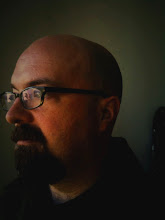Hard bop was developed in the mid-1950s, partly in response to the vogue for cool jazz that became popular in the early 1950s. A simplistic definition states that "cool jazz", or "west coast jazz", emphasized the more European elements of the music, deriving to a great extent from the "chamber jazz" experiments of the Miles Davis nonet and Dave Brubeck's various quartets, while hard bop brought the church and gospel music back into jazz, emphasizing the African elements.
The definition of cool in this context isn't what I would expect. When you think of cool, don't you envision snapping fingers, Chet Baker's chilly vocals or Miles' muted trumpet, a sinuous bass line? Instead, this description describes cool jazz as intellectual, studied, and, well, white. The contrast between cool jazz and hard bop is one I feel strongly today. The serious jazz is either formulaic to a fault or intellectual to the point of sucking the gospel/blues spirit from the music. Or, even worse, is mired in atmospherics and borderline "new age." While I'm not calling for a rigid return to traditional jazz, I do find jazz that tosses the gospel/blues root out the window to be, well, not jazz, and less frequently what I want to listen to.
I mean, there's a lot of room to be intellectual and challenging within the framework! Such as, one of my latest finds (as always, new to me but I'm sure not new to many others):
"Hot" jazz, on the other hand, isn't the opposite of cool but a description from another era entirely. I'll save that for another post. But to sum up, I don't want to reject the "cool" entirely- an intellectual approach to music brings to fruition many great projects. But it is also too much at risk of losing the soul, the root that makes music music.
